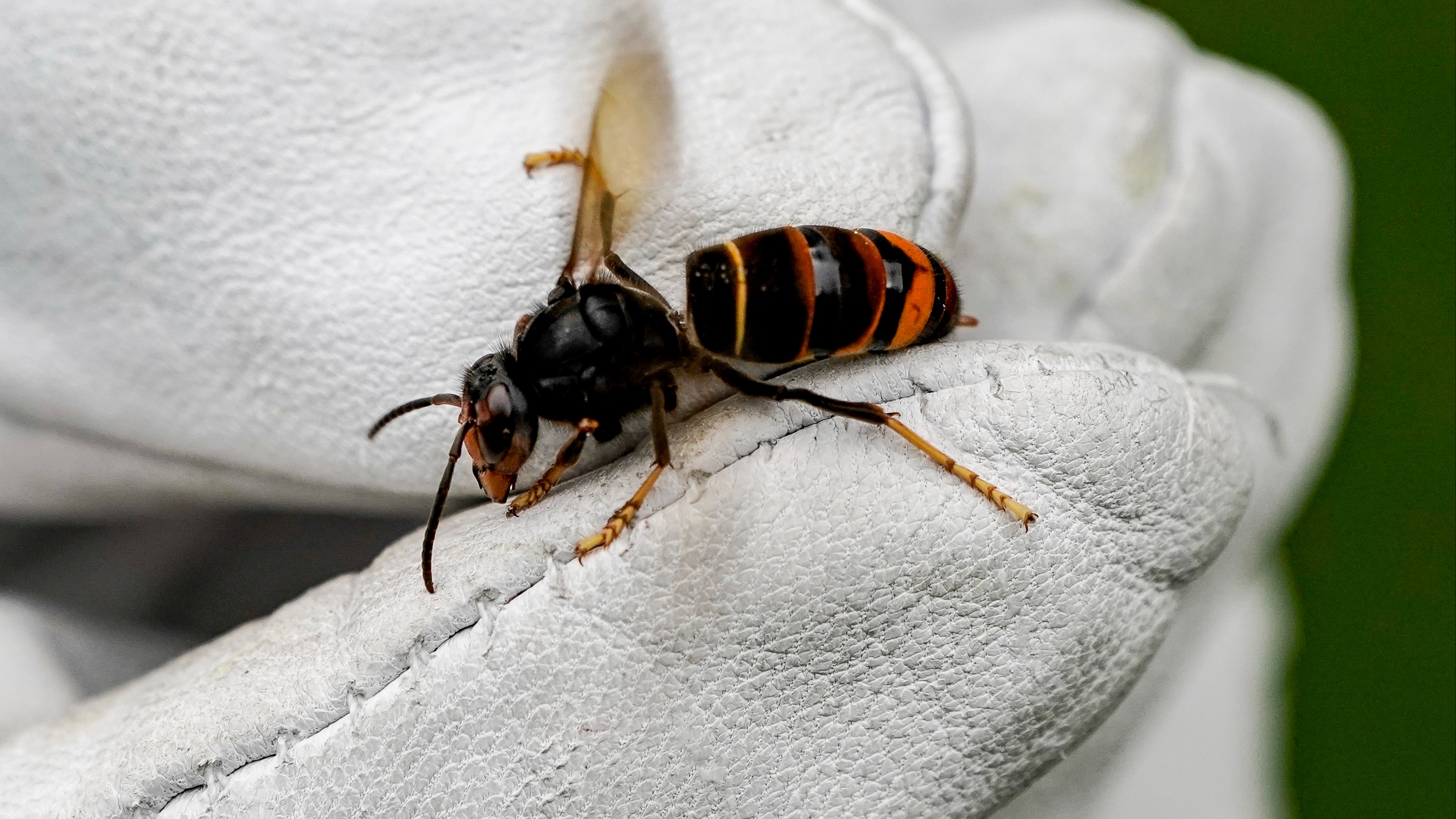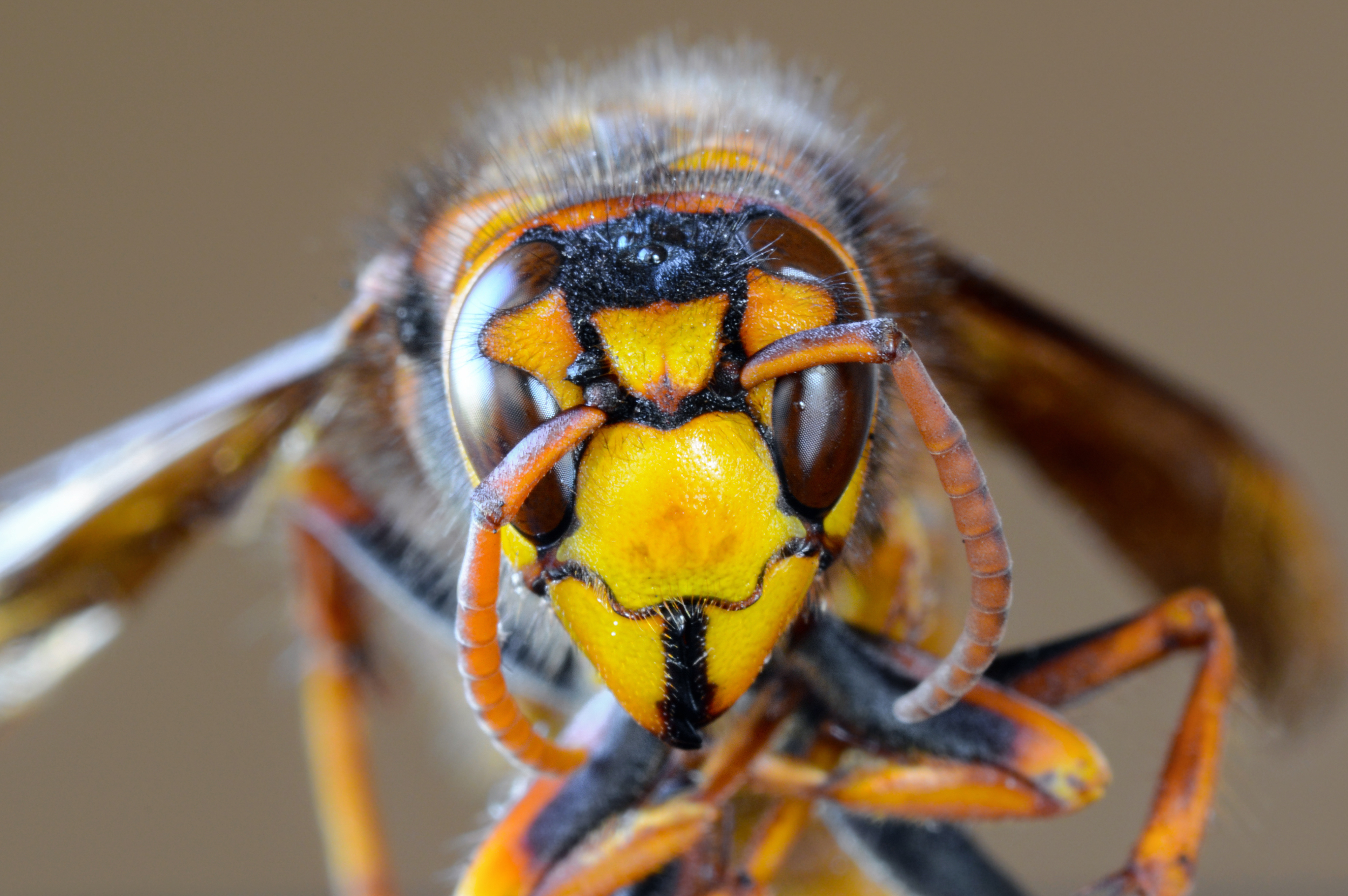Asian Hornet News

Asian hornet news – Asian hornets (Vespa velutina) have become a growing concern in many parts of the world. These invasive species are known for their aggressive behavior and their ability to decimate populations of native insects, including honeybees.
Impact on Local Ecosystems
Asian hornets have a significant impact on local ecosystems. They prey on a wide range of insects, including bees, butterflies, and other pollinators. This can lead to a decline in pollination services, which can have a negative impact on plant populations and the entire food chain.
Control Measures
There are a number of measures being taken to control the spread of Asian hornets. These include:
- Trapping and removal of nests
- Chemical control
- Biological control
Asian Hornet Identification: Asian Hornet News
Asian hornets are a species of large wasps that are native to Asia. They have been introduced to other parts of the world, including Europe and North America, where they have become a threat to native insects and ecosystems. Asian hornets are known for their aggressive behavior and their painful stings.
Amidst the unsettling buzz of Asian hornet news, a somber echo ripples through the global stage. The untimely demise of Iran’s president, as reported in iran president is dead , casts a shadow over international affairs. Yet, as the hornet’s sting lingers in our minds, we turn our attention back to the pressing threat posed by these invasive insects, whose presence continues to alarm entomologists and homeowners alike.
Asian hornets are typically between 1 and 2 inches long. They have a black and yellow body with a distinctive orange head. Asian hornets have two pairs of wings, with the hind wings being slightly shorter than the forewings. The wings are clear with a dark brown or black border.
Asian hornets can be distinguished from other similar species by their distinctive appearance and behavior. Asian hornets are more aggressive than other wasps, and they are more likely to sting. Asian hornets also build their nests in trees and shrubs, while other wasps typically build their nests in the ground.
Asian Hornet Characteristics
| Characteristic | Description |
|---|---|
| Size | 1 to 2 inches long |
| Color | Black and yellow body with a distinctive orange head |
| Wings | Two pairs of wings, with the hind wings being slightly shorter than the forewings. The wings are clear with a dark brown or black border. |
| Behavior | Aggressive and more likely to sting than other wasps |
| Habitat | Nests in trees and shrubs |
Asian Hornet Prevention

Asian hornets are invasive pests that can pose a significant threat to humans and the environment. Taking proactive steps to prevent them from entering your property is crucial for minimizing the risks associated with these insects.
The asian hornet news has been buzzing around lately, but there’s another headline that’s equally alarming: the iran president missing . This news has sent shockwaves through the international community, raising concerns about the stability of the region. Amidst all this chaos, the asian hornet news seems almost insignificant, yet it serves as a reminder that even in times of turmoil, nature continues to present its own challenges.
There are several effective measures you can implement to deter Asian hornets and keep them away from your home and yard.
The news about the Asian hornet’s rapid spread in the United States has been alarming. It’s crucial to stay informed about the threat it poses to our ecosystem. However, amidst the Asian hornet news, there has been speculation surrounding the status of the Iranian president.
To clarify this matter, you may refer to the article titled ” Iran President Alive or Dead ” for the latest updates. Nevertheless, it’s essential to remain vigilant about the Asian hornet situation and take necessary precautions to protect our environment.
Eliminate Food Sources
- Securely cover trash cans and compost bins to prevent hornets from accessing food waste.
- Keep pet food indoors or in covered containers.
- Clean up spills and sugary drinks promptly.
Seal Entry Points
- Inspect your home for any cracks or gaps around windows, doors, and pipes.
- Seal these entry points with caulk, expanding foam, or weatherstripping.
- Repair any damaged screens or torn window panes.
Use Deterrents
- Plant insect-repellent plants around your property, such as mint, basil, or lemongrass.
- Hang fake hornet nests in strategic locations to deter real hornets from building nests nearby.
- Use commercial hornet repellents, such as sprays or granules, according to the manufacturer’s instructions.
Traps
- Set up baited traps to attract and capture Asian hornets.
- Use traps specifically designed for Asian hornets, which often have a yellow or orange color.
- Place traps in areas where hornets are commonly seen, such as near garbage cans or under eaves.
Remember, prevention is key when it comes to Asian hornets. By implementing these measures, you can significantly reduce the likelihood of these pests invading your property and minimize the risks they pose to you and your family.
Asian Hornet Treatment
Asian hornets are a serious pest that can pose a significant threat to humans and animals. If you have an Asian hornet infestation, it is important to take steps to treat it as soon as possible. There are a number of different treatment methods available, each with its own pros and cons.
Chemical Treatment
Chemical treatment is one of the most effective ways to treat Asian hornet infestations. Chemical treatments can be applied by a professional pest control company or by homeowners themselves. There are a number of different chemical treatments available, each with its own advantages and disadvantages.
- Pros: Chemical treatments are effective in killing Asian hornets and can be applied quickly and easily.
- Cons: Chemical treatments can be harmful to humans and animals if not used properly.
Trapping, Asian hornet news
Trapping is another effective way to treat Asian hornet infestations. Traps can be baited with food or water to attract hornets. Once the hornets enter the trap, they are unable to escape.
- Pros: Traps are a relatively safe and effective way to treat Asian hornet infestations.
- Cons: Traps can be time-consuming to set up and maintain.
Biological Control
Biological control is a method of treating Asian hornet infestations using natural predators or parasites. Biological control can be an effective way to reduce the population of Asian hornets, but it can also be difficult to implement.
- Pros: Biological control is a natural and environmentally friendly way to treat Asian hornet infestations.
- Cons: Biological control can be difficult to implement and may not be effective in all cases.
Professional Pest Control
If you have an Asian hornet infestation, it is important to contact a professional pest control company. Professional pest control companies have the experience and expertise to safely and effectively treat Asian hornet infestations.
Asian Hornet Research

Asian hornets are a serious threat to ecosystems and economies around the world. Researchers are working hard to better understand these insects and develop new methods for controlling them.
One area of research focuses on the Asian hornet’s biology and behavior. Scientists are studying the hornets’ feeding habits, nesting habits, and reproductive cycles. This information is helping researchers to develop more effective control methods.
Another area of research focuses on the development of new control methods. Researchers are exploring a variety of approaches, including the use of traps, baits, and pesticides. The goal is to find methods that are effective, selective, and environmentally friendly.
Research is also helping to improve our understanding of the Asian hornet’s impact on ecosystems and economies. Scientists are studying the effects of the hornets on native insects, birds, and mammals. They are also assessing the economic losses caused by the hornets.
This research is essential for developing effective strategies for managing the Asian hornet threat. By better understanding the hornets’ biology and behavior, researchers can develop more effective control methods and mitigate the impact of these invasive insects.
Potential for New Asian Hornet Control Methods
Researchers are exploring a variety of new control methods for Asian hornets, including:
- Traps: Traps can be used to capture Asian hornets. Traps can be baited with food or pheromones that attract the hornets.
- Baits: Baits can be used to kill Asian hornets. Baits can be placed in areas where the hornets are likely to feed.
- Pesticides: Pesticides can be used to kill Asian hornets. Pesticides can be applied to areas where the hornets are likely to nest or feed.
These are just a few of the new control methods that are being explored by researchers. The goal is to find methods that are effective, selective, and environmentally friendly.
How Research is Helping to Better Understand the Asian Hornet’s Biology and Behavior
Research is helping to better understand the Asian hornet’s biology and behavior in a number of ways:
- Feeding habits: Researchers are studying the Asian hornet’s feeding habits to learn what foods they prefer and how they obtain food.
- Nesting habits: Researchers are studying the Asian hornet’s nesting habits to learn where they build their nests and how they construct them.
- Reproductive cycles: Researchers are studying the Asian hornet’s reproductive cycles to learn when they mate and lay eggs.
This information is helping researchers to develop more effective control methods. For example, knowing what foods the hornets prefer can help researchers to develop more effective baits. Knowing where the hornets build their nests can help researchers to develop more effective traps. And knowing when the hornets mate and lay eggs can help researchers to develop more effective pesticides.